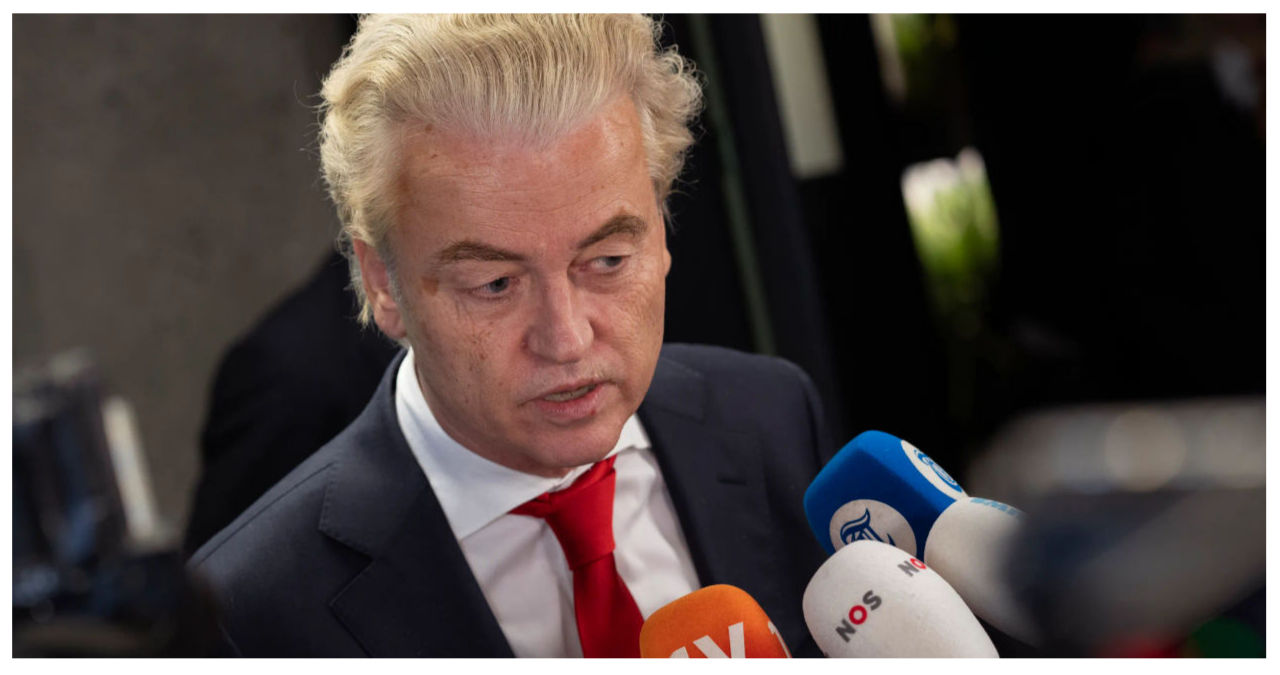Anti-Islam firebrand Geert Wilders and three other party leaders have reached a coalition deal early Thursday, signaling a shift towards the hard right in the Netherlands. This agreement concludes a tumultuous six-month negotiation period, although the identity of the future prime minister remains uncertain.
The agreement titled “Hope, Courage, and Pride” brings forth stringent measures for asylum seekers, eliminates the provision for family reunification among refugees, and aims to decrease the count of international students pursuing education in the country.
The 26-page document strongly advocates for the deportation of individuals who do not possess a valid residence permit, emphasizing that this action should be taken whenever feasible, even if it means resorting to force.
“We are witnessing a historic moment today,” Wilders declared, emphasizing his successful efforts in securing the approval of the core principles of his program from the three other coalition parties, including the one led by outgoing Prime Minister Mark Rutte.”
Geert Wilders expressed his optimistic outlook for the future of the Netherlands, stating confidently, “The sun will shine again in the Netherlands. It is the strongest asylum policy ever.”
Hard-right and populist parties have become increasingly influential in the European Union, with their presence in or leadership of several governments. As the bloc prepares for the upcoming June 6-9 election, these parties are poised to make further gains. Notably, Wilders has formed political alliances with other radical right and populist leaders, including Viktor Orbán of Hungary, Georgia Meloni of Italy, and Marine Le Pen, the leader of the French opposition.
Wilders expressed his immense pride in his party being at the center of power, stating, “My party will be at the center of power. It makes us enormously proud.”
Wilders had to make personal compromises, although he reluctantly admitted that he will not be succeeding Rutte as the country’s leader. It is still necessary for the parties to come to an agreement on a prime minister, who is anticipated to be a technocrat from outside the party structures.
Ronald Plasterk from the Labor Party has been the center of speculation. This year, he regained prominence as he became the first “scout” to engage in discussions with political leaders regarding potential coalitions.
The next government has committed to upholding the current plans to address climate change, which includes maintaining the funding for the climate change fund established last year. However, it is important to note that the coalition includes the Farmers Citizens Movement, and as a result, the deal includes measures to appease farmers who have previously staged disruptive protests by blocking cities with tractors.
The agreement also encompasses several other key points. For instance, it aims to enhance the availability of social housing, impose more stringent penalties for severe offenses, and place a cap on property taxes. These measures are all part of the comprehensive plan outlined in the agreement.
The group plans to maintain its support for Ukraine and aims to pass a law that would make it mandatory for countries to spend 2% of their gross domestic product on defense, in line with NATO standards.
The Netherlands expresses strong reservations about the European Union’s plans for further enlargement, as stated in the coalition deal. This stance contradicts the desires of several other member countries, who are keen on including Ukraine and other eastern nations. It is important to note that any expansion of the EU requires unanimous agreement from existing member states.
The program will be explained to parliament on Thursday, but a debate on the agreement will not take place until next week.



